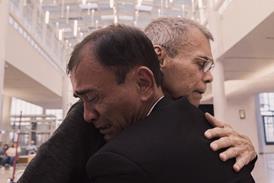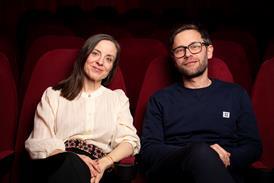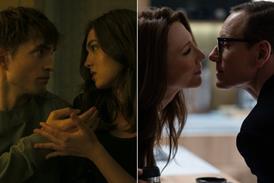UK film director Beeban Kidron tells Screen why she believes the fate of the future of cinema may lie with FILMCLUB, the after-school film club charity of which she is deputy chair.
Beeban Kidron is one of the UK’s leading female directors whose multifarious credits include the BBC TV adaptation of Oranges Are Not The Only Fruit, features such as To Wong Foo, Thanks For Everything! Julie Newmar and her biggest hit, Bridget Jones: The Edge Of Reason. Kidron has also made documentaries illuminating diverse lives such as that of artist Antony Gormley as well as the devadasi of India, young girls sold to be concubines.
In 2008, Kidron harnessed her love of film in all its forms to co-found, with journalist and film critic Lindsey Mackie, the education charity FILCMCLUB, a free after-school club for five to 18 year-olds of which she is deputy chair. Kidron’s aims are ambitious: to not only enhance the lives and education of schoolchildren through introducing them to the transformative nature of film but to nurture the cinema audiences of tomorrow, ensuring nothing short of the very future of film itself.
Importantly, FILMCLUB children are encouraged to become cine-literate, discussing the films and writing reviews online. (A selection are published each month in the prestigious Times Education Supplement.) Leading industry figures from behind and in front of the camera, including Rio director Carlos Saldanha, as well as Richard Linklater and Henry Winkler, regularly visit schools to discuss their work.
Until the end of 2012, FILMCLUB is majority-funded to the tune of £3m – £5m annually by the government’s Department of Education and the Welsh Assembly. The charity is now looking for financing beyond 2012. Through a partnership with the UK’s leading online DVD rental company LOVEFiLM, FILMCLUB offers a free DVD library of thousands of films to some 250,000 children at 7,400 UK schools. Kidron’s hope is for a FILMCLUB to open in every UK school. “It’s a generational game-changer.”
How important is FILMCLUB to the UK film industry?
Through FILMCLUB we are creating a habit and desire for cinema in children. If we want an audience for long-form drama and cinema in a world that has many long-form options, we have to create an appetite for that in the young. And if want to maintain a broad, demanding and educated audience for long-form cinema then we have to create that audience. There’s a commercial interest [in that] for the film industry. This audience is willing to come to the cinema and watch films.
What does FILMCLUB need from the industry now your funding is set to end after 2012?
I would like industry players to adopt us as their charity. We are growing an audience. We are an [industry] experiment someone else has paid for. Now we are looking for a more formal arrangement [with the industry]. The industry has a part to play by making this connection with the next generation of users. These are the very people the industry is scared of, this generation that is growing up knowing how to download to illegally.
What role can FILMCLUB play in helping to prevent piracy?
We have an opportunity to make an emotional connection between the makers and the users. If someone like Kevin Macdonald goes into schools [through FILMCLUB’s Close Encounters programme], it humanises the relationship between the film, the filmmaker and the theoretical notion of authorship. We can show why and how people make films. We’re sending in gaffers and choreographers, we’re describing the complexity and cost of making a film.
How is FILMCLUB helping the industry in other ways?
The FILMCLUB project is to see quality and offering in all things. We are absolutely committed to the mainstream. We will all go and see Harry Potter. And then maybe FILMCLUB children will also go and see Senna because they have watched documentaries in FILMCLUB and also a French thriller because they don’t care about subtitles. FILMCLUB doesn’t damage the commercial, it only adds to it. Our children are more likely to spend their money at the cinema. We celebrate cinema as an experience.
Every time a film is show at a FILMCLUB its DVD rentals increase as the children rent the films to show to their parents. FILMCLUB is geared towards the largest possible engagement with film. Four-fifths of our films are over five years old. We are using the long tail of film.
Why does FILMCLUB cost so much to run?
We train two teachers to fun a FILMCLUB and use the resource. We have a mechanism where every teacher who runs a club has a named person in our office to talk to and all of their telephone numbers. The teachers tell us there is no other schools initiative that gives them that level of support. There are a limited number [of FILMCLUBs] we can facilitate due to the editorial back-up. It all takes time and money. We have 40 staff, depending on the time of year [it only operates in term time] and we stage roadshows taking films like Fire In Babylon, Donor Unknown and Africa United around the country.
What makes FILMCLUB unique?
Every other school club can cut kids out. If you want to do a cooking class it costs £2. FILMCLUB is free. My bigger purpose is a cultural and educational one, that film gets its rightful place in the cultural pecking order. In my view, film is the 20th century’s greatest art form, with over 100 years of films to draw on. It is where drama, music and literature meet. [Cinema] is one of the few classless places of endeavour. You do not have to be swift of foot nor brilliant of mind to watch a film. Everyone comes out richer. It is a curated space, a thinking space of ideas from the practical to the philosophical to the historical to the social to the purely informative. That is the transformative nature of film. It has an ability to take you on a journey.
What are the films that shaped your own childhood?
I grew up with rainy days and Sunday afternoons of black and white movies. My own memories are of Funny Face and Mildred Pierce, the grande dames of the cinema. They were probably programmed for women who had just made the Sunday lunch to make them feel better! And my brother and I went to see the Carry On films at the cinema on a Sunday morning. As I am from an immigrant family my father had a huge passion for the social realist films out of Italy at the time. The film that changed my life was Miracle In Milan by Vittorio de Sica which now appears on the top 10 films in FILMCLUB.
Away from FILMCLUB, what projects are you working on?
I have a film about a young English woman who is sold, in that she gets married for the economic benefit of her family. It’s a satirical look at consumerism. I’m also developing a series with the BBC called Bonus Babes set in the City of London about the wives and girlfriends of the bankers. And I’m working on a documentary for Channel 4 looking at this generation of teenagers who are inventing their social and sexual selves in light of 24-hour social-networking. How mediated by other forces is the kids’ experience of growing up? Saying it out loud for the first time I realise they are all about how the personal and economic are inter-related.





















No comments yet